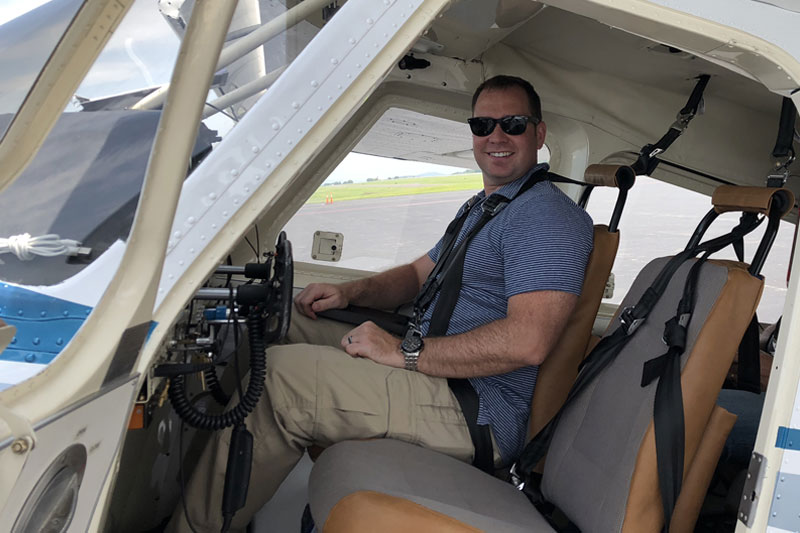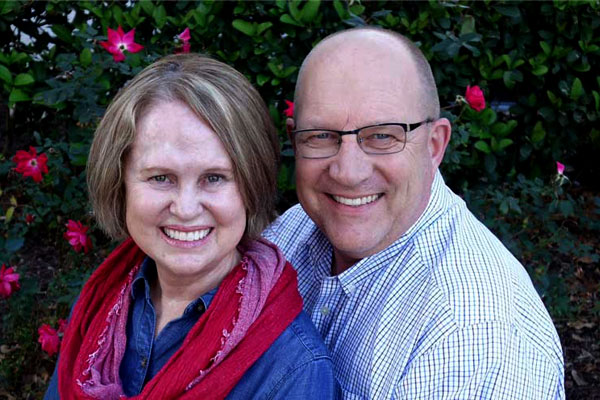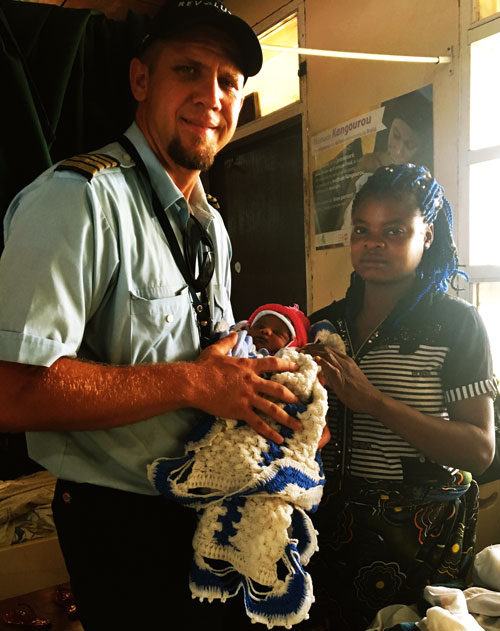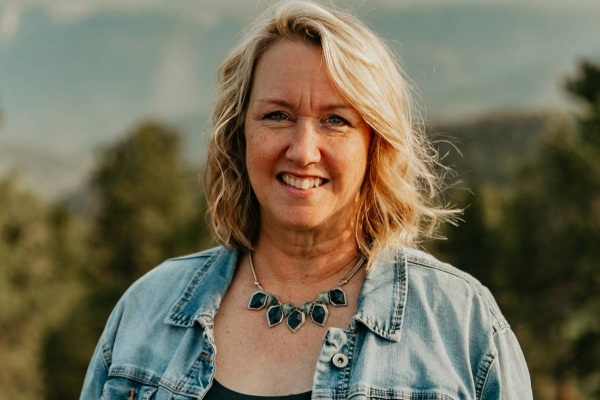5 Ways Your Military Experience Equips You for Missions

and now serves as the chief of staff for JAARS, a Wycliffe partner organization.
When you think of a healthy, effective missionary, do you think of someone with a military background? Veterans have skill sets that have uniquely prepared them to serve people across the globe.
Gary Sikma, Mark Spangler, Stephen Sweeney and Michael Stone share five ways that their military experience has equipped them to serve in the global Bible translation movement.
1. Use Your Cross-Cultural Skills
When Gary Sikma was serving with the U.S. military, he spent extensive time living in Germany and a brief time in parts of Somalia. “It became a home away from home, and I enjoyed getting to know the language, the culture and getting to experience the diversity,” he said.

By pausing and listening to people so they felt understood and respected, Gary grew in relationships with local communities. “It was a tremendous opportunity to fall in love with the people of Somalia and quite frankly, it is when God started to grow in me an affinity for the people of Africa,” he shared.
Little did Gary know that God would use that passion and his experience across Europe and Africa to prepare him to be the senior field coordinator for translation projects in parts of Europe, Africa and Asia. Gary coordinates with local churches and communities to ensure local ownership and partner involvement, enabling communities who are still waiting to receive translated Scripture.
Gary encourages veterans to follow their passion and heart for others. “Continue that service in a way that goes beyond just what we can do for … your country and look toward where our citizenship really lies,” he recommended.
2. Use Your Technical Skills
Mark Spangler is a helicopter pilot based in Yaounde, Cameroon. Prior to serving with Wycliffe, he honed his aviation skills by flying for the U.S. Army. Many people groups in Cameroon live in areas where roads are limited. Helicopters provide critical transportation for translation teams and assist with medical transport for local hospitals.

“Flying for the Army enabled me to get enough hours of flight time and lots of really good experience,” Mark said. “Being in aviation in the Army meant we were able to make the lives [of the frontline troops and combat guys] easier. That’s a natural transition … to my role here in Cameroon. I’m not the one doing the linguistics or the translation or church planting, but my role certainly makes [those roles] a lot easier and more effective.”
Mark also serves in crisis management for the missionaries living in Cameroon and helps monitor safety in the aviation department. “In the military, my second role was managing life-saving equipment and security and safety. Those things helped prepare me [for Cameroon].”
“Flying was the hook that God got me into missions,” Mark laughed.
3. Use Your Leadership Skills
Stephen Sweeney spent 15 years in active duty as a flight officer in the U.S. Navy and now serves as the chief of staff for JAARS, a Wycliffe partner organization. JAARS makes translation work and language development possible in even the most remote places by providing transportation, technology, media and training solutions.
Naval aviation doesn’t mean you’re just an aviator though. Stephen reflected: “You are a leader and a manager in that squadron or unit. ... Even as a junior officer, I was mentoring, leading and managing teams of over 100 sailors with maintenance control of aircraft.”
Life on an aircraft carrier meant Stephen cared for his team through a wide range of challenging situations. Now Stephen is doing the same thing at JAARS. Stephen said: “Leadership is about the people you are leading, not about you as a leader. It’s about removing barriers, … giving [people] vision and direction so they can do their job and ... grow to their full potential.
“Key values that exist in the military include putting others before yourself, caring about those around you and working for a greater purpose. Those are also foundational in missions! There are a lot more commonalities [between] missions and the military than people might think.”
4. Use Your Commitment and Dedication
Michael Stone served as a navigator on the B-52 Stratofortress in the U.S. Air Force and now works on the Global Partnerships team as a field coordinator for 16 language projects across West Asia and North Africa. “My job is to track their progress and ensure proper resources are provided in order to accomplish these goals, “ Michael shared. “When delays due to unforeseen circumstances occur, my job is to work with the teams until all the goals are accomplished and the Scriptures are ready to be distributed to the local believers.”

When Michael signed up to serve in the Air Force, it wasn’t a decision that was made lightly: “This commitment involved being willing and able to deploy at any time as well as dedication to doing quality work. I knew I was committed to a high calling and that I was obligated to go wherever the Air Force sent me.
“As a crew member, I had to make sure my part was done well so that the mission would be accomplished according to plan. If I failed to communicate effectively or complete my tasks thoroughly, everyone else's safety and the entire mission would be in jeopardy.”
Michael takes that dedication into his work with Bible translation: “When I hear stories and know that my work has helped people meet Christ through God's Word, I know the mission has been accomplished!”
5. Use Your Problem-Solving Skills
Gary, Mark, Michael and Stephen all find themselves using their military problem-solving skills on the mission field.
“In the military you are focused on [executing plans] from day one,” Stephen said. “One of the challenges of any organization is executing the mission statement. How do you determine the strategy and tactics … [and make them happen]?
“I want to help JAARS take those practical steps and then track and quantify the results. ... [Taking] those skills [from the military] and applying them in a missions context … is key.”
Gary’s second role is a strategic innovations consultant, where he tackles hard problems and tries to find solutions from new perspectives, new resources and new partnerships. “I take mountains of data and break them down into actionable intelligence,” Gary said.
Similarly, Michael’s experience solving problems as a team in the Air Force translates directly into the missions context. “It’s essential that I work with my fellow team members to solve relational and financial problems on the field quickly,” Michael said. “When I do my tasks of advocating, financing and encouraging well, the whole translation team benefits and the translated Scriptures have their maximum impact.”
Making the Transition
Although transitioning from the military to missions can initially feel daunting, it doesn’t have to be. “I realized both the Air Force and Wycliffe are nonprofit organizations,” Michael said, “which helped me see I had already dedicated myself, my family and my career to an essential mission in the not-for-profit world; the leap wasn't as big as it had initially seemed.”
Mark agreed, observing that Wycliffe and the military organize people in similar ways: “It helped me to think of Cameroon like the active duty Army base and [Wycliffe’s headquarters in Orlando] like the training base.”
“As veterans, we’ve given significant time and energy for our country’s security and safety,” Mark said. “That’s the underlying thing which is what is going to make [military personnel] good missionaries. You served your country? Now come serve your Creator!”
To learn more about serving in missions as a veteran, watch our Military to Missions webinar series.






